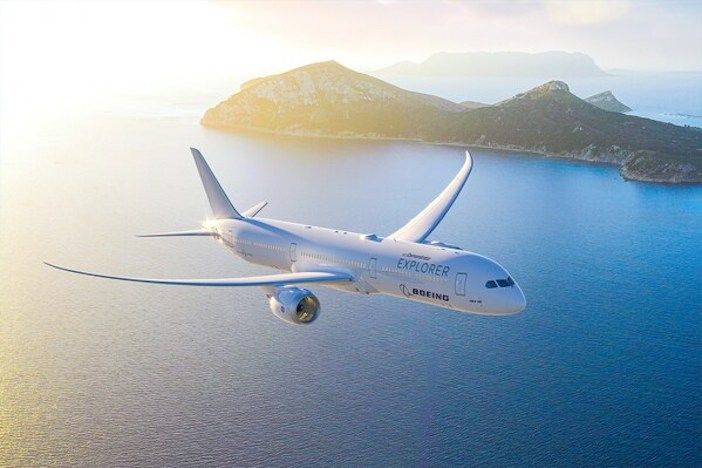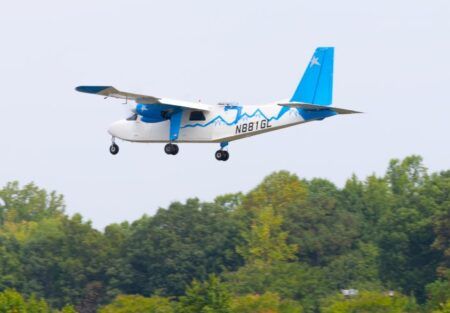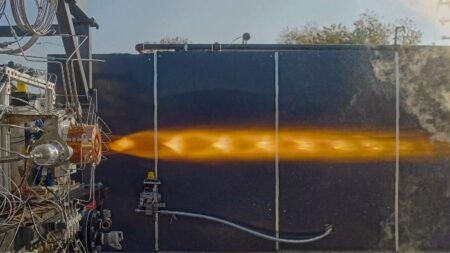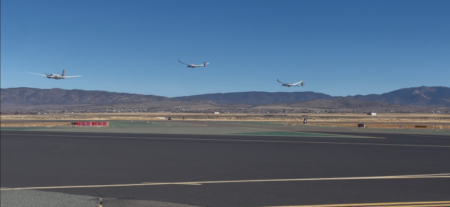Boeing is to expand its ecoDemonstrator flight testing program this year with a fleet of Explorer aircraft.
The annual ecoDemonstrator flight testing program, which has been running since 2012 trials new sustainability and safety technologies to fast track their development.
Boeing usually uses a single aircraft for ecoDemonstrator flying testbed, borrowing them from customers pre-delivery or taking them on to the program once they have finished their commercial service.
That will change this year when the company flies its first Explorer test aircraft, a Boeing 787-10 Dreamliner, in an operational efficiency exercise next month.
The exercise will consist of a series flight tests from Seattle to Tokyo, Singapore and Bangkok in partnership with air navigation service providers (ANSPs) to demonstrate ways of reducing fuel usage and emissions by optimizing flight paths. Boeing believes reductions of up to 10% are possible by better coordinating of navigation across global airspace jurisdictions.
This will involve sequencing the aircraft’s routes to achieve the optimal flight path across multiple regions, factoring in conditions such as weather, air traffic and airspace closures, said the US aircraft manufacturer.
The Explorer aircraft will also fly on the highest available blend of sustainable aviation fuel (SAF) at each location.
Boeing chief sustainability officer Chris Raymond said, “Our initial Explorer testing in partnership with aviation stakeholders in four countries is a great example of how we can work together to optimize operational efficiency and reduce emissions.”
In addition this year, the company plans to use the ecoDemonstrator aircraft from last year, a 777-200ER (Extended Range) to test 19 other technologies. Other Explorer airplanes will also be used to test specific technologies.
Stan Deal, president and CEO of Boeing Commercial Airplanes said, “To support our industry’s goal for net zero carbon emissions by 2050, Boeing is expanding our ecoDemonstrator program with Explorer airplanes to test even more sustainability-focused technologies.
“We continue to invest in innovation that reduces fuel use, emissions and noise on our products and to partner with governments and industry to make progress on sustainability during each phase of flight.”
The 19 technologies to be tested on the 777-200ER ecoDemonstrator, which will also fly on the highest available blend of SAF locally includes:
- Sustainable wall panels in the cargo hold that are made of 40% recycled carbon fiber and 60% resin made from a bio-based feedstock
- A fiber optic fuel quantity sensor compatible with 100% SAF
- An Electronic Flight Bag application featuring Smart Airport Maps, a component of Jeppesen FliteDeck Pro, which reduces operational costs and supports safe taxi operations with the depiction of contextual airport data





